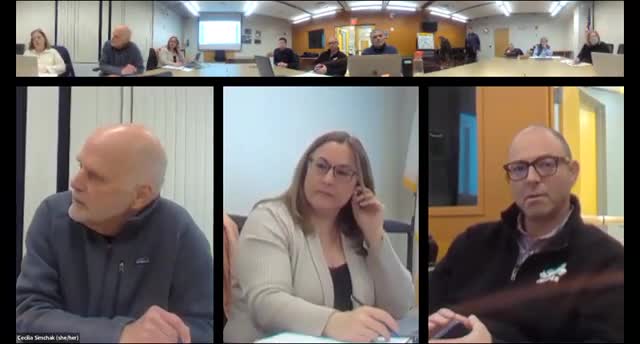CPC members hear updates on Needham housing projects; funding and zoning remain unresolved
Get AI-powered insights, summaries, and transcripts
Subscribe
Summary
Committee members discussed multiple Needham Housing Authority projects, interdependent subsidy strategies and zoning pathways including friendly 40B; members identified funding gaps related to tax-credit availability and recent federal/state developments.
Committee members on Jan. 8 discussed several Needham Housing Authority (NHA) projects and related affordable-housing proposals, focusing on funding gaps, zoning options and interdependencies among projects.
A representative of the Needham Housing Authority told the Community Preservation Committee that the Linden Street and Leland Street redevelopment efforts depend on a combination of construction financing and 20-year operating subsidies. The presentation identified a dependency in which the Seabeds and Cook project (identified in the transcript as "Seabeds and Cook") would need to secure construction funding so that subsidy units there could be reallocated to help finance Linden Street. The representative said the $5.5 million local contribution approved last year helped close part of a construction funding gap but that other sources remain uncertain.
Committee members and applicants discussed tax-credit financing. The transcript records that the 4 percent tax-credit route is oversubscribed and that a lawsuit against HUD eliminated a program the proponents had relied on; proponents therefore must pursue alternate financing that may not provide the same funding level. A housing representative summarized how subsidy vouchers increase operating revenue and thereby increase borrowing capacity for permanent financing: "the greater the operating revenue you have, the greater your borrowing capacity," the representative said.
Zoning and permitting timing was a recurring concern. Members urged applicants to clarify immediately whether they will pursue a friendly Chapter 40B path, a Zoning Board of Appeals (ZBA) approach or a local zoning bylaw change, because each path affects timing and whether an application can be ready for the CPC’s March decision window. One member said applicants should contact town planning staff (identified in the transcript as "Lee") and the Inland (planning) office to confirm the zoning approach and advised that presentation materials on Feb. 12 should reflect that readiness.
The committee also heard that the Massachusetts Supreme Judicial Court upheld the constitutionality of the MBTA Communities Act but ruled that certain guideline procedures were not properly promulgated; state emergency regulations were expected to be issued. A housing representative warned the committee the ruling left open additional procedural steps and that failure to comply could affect available funding; the speaker noted that a related forthcoming vote could affect project funding levels. The representative prefaced the comment by saying, as an appointed housing authority commissioner, they were not permitted to lobby on the matter.
Committee members proposed follow-up actions including arranging a working meeting with town staff (including Dave Davidson and Cecilia) and the committee’s consultant Emily to brainstorm alternative financing approaches and asking applicants to collect and respond to zoning, funding and readiness questions in advance of the Feb. 12 presentations. No formal funding votes were taken Jan. 8.
